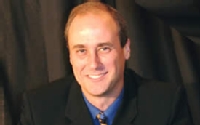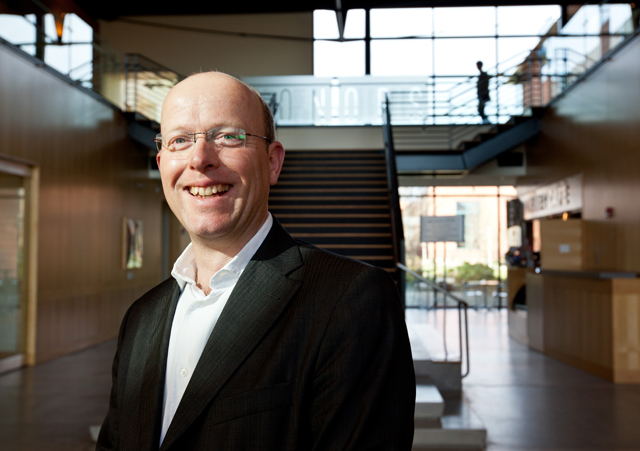Page 483 • (5,289 results in 0.052 seconds)
-

the city and we became fast friends. In the program we had artists from India, Dublin, Norway, US, Cuba, Mexico and Turkey. This eclectic mix of people contributed to very interesting conversations about different techniques, philosophy and artists that inform our work.Through the classes at the school, I gained a deeper understanding about proportions and strategies for translating a model from life to page. As well as teaching technique, the teachers also shared art philosophy and theoretical
-
interdisciplinary and intersectional approach to the study of racism, racialization and racial formation, both locally and globally. It draws on the GSRS program’s curricular strengths in teaching the social construction of identity, centering black feminist ways of knowing, analyzing systems of privilege and oppression through an intersectional lens, and imagining more just societies. Our curriculum is founded on the belief that systemic racism structures everyday life and that everyone, therefore, has a
-
Campuswire: An Online Discussion Tool for Engaging Course Communication Posted by: berlinma / July 16, 2020 July 16, 2020 The past few months have been a challenging time for education. PLU faculty had to quickly adapt their classrooms into an online environment and rethink how to deliver their pedagogy in entirely new ways. One of the biggest obstacles to online teaching and learning is student-to-student engagement and interaction. Instructors may wonder how they can replicate, or at least
-
Workshops and Training ResourcesInformation & Technology Services staff offer a number of resources for teaching and learning with technology on topics such as: Google Sites Screencasting with WeVideo Audacity Basics Adobe Acrobat Graphic Design with Canva Sakai Qualtrics Backups and Data Security at PLU Web Conferencing with Zoom and more… ! Training ResourcesInformation and Technology Services has transitioned to offering most of our training resources through self-paced walkthroughs and
-
minutes of fame on NBC’s prime-time “Who Do You Think You Are?” teaching academy-award winning actress Helen Hunt about her San Francisco Jewish roots. While the show was canceled by the network after my episode ranked 4th in the week’s ratings, I still get cool dad points from my family and my students. While certainly not a football player, I did get to chat with two offensive lineman from the NFL about some troubling incidents of antisemitism among NFL players. Then, CNN’s Don Lemon dedicated an
-
to strengthen their writing skills and/or practice; they can explore broader aspects of the writing life, such as publishing internships or teaching opportunities; they can immerse themselves in research for a specific writing project; they can contribute to the cultural and literary life of their own communities. Each participant designs their experience with the support and oversight of the Outside Experience coordinator. Here’s a sample of what some RWW students have done for their Outside
-
provost, the department chairs and deans selected Kaufman to represent PLU. Kaufman said she was happy to be picked, especially since PLU has many talented faculty members. It’s also a prestigious award and tied to teaching, which she cares passionately about. “Rona is an extremely innovative teacher,” said Jim Albrecht, English department chair. “We nominated her both on her outstanding record as a teacher at PLU and the strength of her research proposal for the award.” Her $8,000 award will support
-

festivals. He was executive director of the ProMusica Chamber Orchestra of Columbus, Ohio, and was executive director of the MidAmerica Chamber Music Institute. According to PLU Provost Steven Starkovich, Bennett “brings a long and exemplary record of teaching, scholarship, planning, fund raising, budget and personnel management, leadership and service to his new position at PLU.” “Our School of Arts and Communication will be very well-served as we move forward into the future with Cameron’s thoughtful
-
described it, he “pushed the re-set button.” He decided to earn his master’s – then his Ph.D. – in European history. And soon thereafter, he found himself back at his alma mater teaching about Martin Luther and Reformation Germany (and writing books about the subject, of course). He realizes it is an odd combination: Not many people are experts in cutting-edge computer programming and 500-year old political and religious history. He’s also aware that some people might suggest that, in studying 16th
-

to the Pacific Northwest. Thompsen had been finishing a two-year program at a business college in Norway and was ready to go on to a university. First, he made his way to a university in New Orleans. A semester later, he was ready to move on. Classes where hundreds of students packed a lecture hall to be taught by teaching assistants, not professors, was disappointing to say the least, Thompsen recalled. By chance, he had a friend attending PLU. It became apparent to him early on that it might
Do you have any feedback for us? If so, feel free to use our Feedback Form.


